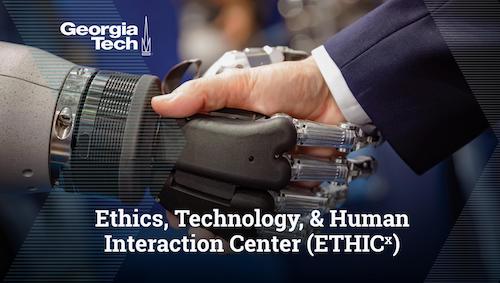
Building on years of experience in research and education in ethics and technology, the College of Computing and the Ivan Allen College of Liberal Arts have launched the Ethics, Technology, and Human Interaction Center (ETHICx).
The new Center — pronounced “ethics” — will advance ethics-in-technology-centered research, education, and engagement at the Georgia Institute of Technology in collaboration with communities, government, non-governmental organizations, and industry. The office of the Executive Vice President for Research provided significant funds over a three-year period to seed the Center.
“We must foster Georgia Tech’s strengths in ethics, responsible research, and the development of emerging technologies in collaborative ways,” said Raheem Beyah, Georgia Tech’s vice president for interdisciplinary research. “ETHICx will provide the necessary environment to support this work and Georgia Tech’s mission to advance technology and improve the human condition.”
The Colleges already have in-depth research and education experience addressing technology-related ethics questions. For instance, the School of Public Policy founded the Center for Ethics and Technology more than 12 years ago to foster a critical inquiry culture and deliberation about technology-related ethical issues. Faculty in that Center research ethical issues in the design of emerging contact tracing technologies, design ethics, social justice theory, and criticism broadly, and their relationship to emerging technologies such as smart cities, self-driving cars, and smart assistants, and a platform for fostering reflection and self-correcting reasoning in teaching and deliberation. The College of Computing also has created thriving research and educational initiatives such as the Ethical AI professional development course and the Law, Policy, and Ethics Initiative for Machine Learning @ GATECH.
The new Center will build on those strengths and position the Georgia Institute of Technology to become the leader in framing ethical concerns in technology, including fairness, accountability, transparency, social justice, and technological change.
